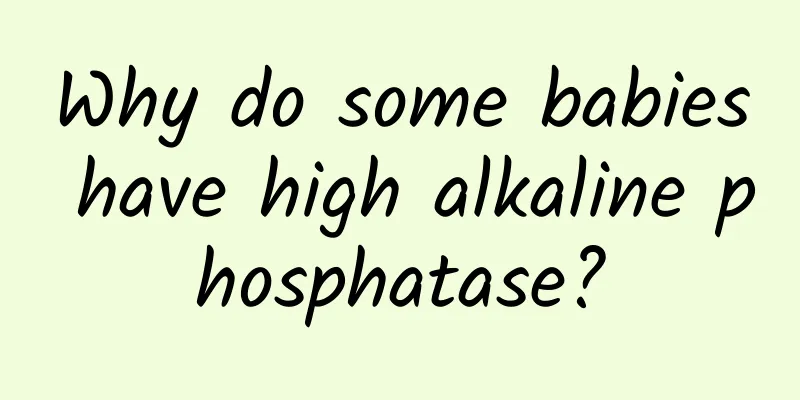What causes red spots on the child's arm?

|
If there are red spots on a child's arms, parents should pay attention to whether the child has a fever. Also, they should consider the weather. If the weather is hot and the child is wearing more clothes, this may be caused by heat rash. In addition, if the child has a fever but no other symptoms, this may be caused by roseola infantum. Another situation is skin inflammation, the most common of which is eczema. 1. Roseola infantum This disease should be considered in infants and young children under 2 years of age who suddenly develop a high fever with no other systemic symptoms and develop a rash when the fever subsides. This disease needs to be differentiated from pneumococcal sepsis, measles, rubella and Kawasaki disease. It is more important to differentiate it from rubella because the rashes of the two are similar, but the fever of children with rubella is not high. The rash appears at the same time as the fever, and the enlargement of the lymph nodes behind the ears and in the occipital region is more obvious. Roseola infantum is a rash that appears after the high fever subsides for 3 to 5 days. 2. Eczema Allergic eczema in children often occurs in the forehead, eyebrows, cheeks, scalp, around the auricles and other parts of the head and face, and then gradually spreads to the neck, shoulders, back, limbs, around the anus, vulva and other skin wrinkles, and can even affect the entire body. Because eczema is accompanied by extreme itching, children will scratch the rash area with their hands, causing skin breaks. When lying down, the child will rub the back of the head on the pillow, causing pillow baldness; when lying on his stomach, the child will rub his face with the bed sheet to relieve the itching; when hugging, the child will snuggle up to your shoulder and rub his face. The sick children are often irritable and restless due to the extreme itching, crying at night and affecting their sleep. Also, since children scratch the itch with their hands, it can often cause bacterial skin infection and further aggravate the condition. 3. Prickly heatIf it is a hot summer day, the small red spots on the baby's body may also be prickly heat. Almost everyone has been attacked by prickly heat when they were young. This skin disease often occurs in the summer, when the temperature is high and the humidity is high. Young children have a fast metabolism and are active, so their bodies secrete a lot of sweat. If the mother does not wipe off the baby's sweat in time, the sweat will clog the pores, irritate the baby's delicate skin, and cause a surge in prickly heat. 4. Hand, foot and mouth disease Hand, foot and mouth disease is a common infectious disease caused by a variety of human enteroviruses, mainly affecting infants and young children. Most children have mild symptoms, with fever and rash or herpes on the hands, feet, mouth and other parts of the body as the main features. A small number of children may develop damage to the central nervous system and respiratory system, leading to aseptic meningitis, encephalitis, acute flaccid paralysis, neurogenic pulmonary edema and myocarditis. Some seriously ill children may progress rapidly and are prone to death. |
<<: Causes and symptoms of red spots on baby's face
>>: What are the dangers of red spots on the penis that do not hurt or itch
Recommend
How to lose weight after miscarriage, diet therapy for weight loss and recuperation after miscarriage
Miscarriage can cause great harm to women's b...
Will a uterine cyst go away on its own?
Uterine cyst is a common gynecological disease, w...
Precautions for nonspecific interstitial pneumonia
The onset of symptoms mostly reflects physical pr...
Causes of autism in children
The world of every autistic person is lonely. The...
How to prevent facial paralysis effectively?
Many people are often troubled by facial paralysi...
How to remove formaldehyde most effectively
Formaldehyde is very harmful to humans and can ea...
What medicine should I take for high altitude cold?
Nowadays, many people like to travel, see the sce...
What can't you eat if you have epilepsy?
Epilepsy is a disease caused by abnormal brain di...
Treatment of psoriasis
There are many common diseases in life, and psori...
Pregnancy complicated by anemia
When pregnancy complicated with anemia actually o...
What to do if you have anxiety disorder and feel dizzy and unsteady
Anxiety disorder can cause many physical symptoms...
Cold hands and feet during early pregnancy
Since many pregnant women are experiencing their ...
What is the best way to treat uterine cold?
Many women have the problem of cold uterus, which...
What to do if kidney deficiency causes hair loss? Chinese medicine teaches you how to nourish the kidneys and prevent hair loss
In our daily lives, we often find that some peopl...
What are the common pathological types of lupus nephritis?
With the changes in living environment, the air a...









